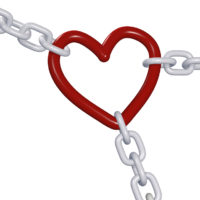Dear Neil: I am 43 years-old and have never been married. I have a college degree, am adventurous and fun. But I don’t know how to trust people and allow my defenses to come down. I couldn’t trust my parents. My first boyfriend cheated on me with my best friend, and I have a history of choosing toxic partners. I don’t know how to lose the defenses that I have developed. I have been celibate for the last three years. I feel myself not caring anymore if I ever allow myself to try to trust a boyfriend again. Why try when it’s already been 27 years of failed relationships with male and female friends? I always have conflicts with my jobs. I feel as if everyone always wants to find out my faults, my failings, my inadequacies. Why can’t people see that I’m fun, intelligent, caring, responsible, kind and interesting? What am I doing wrong?
East Coast Defense
Dear East Coast: If I have a hard time trusting people, I have grown to expect that you’re going to hurt me. So how am I going to get close to you? I fear that if I let you get close, you’ll either judge me, criticize me, reject me, hurt me, control me, betray me or abandon me. So, if I have a hard time trusting others, I find myself in the impossible position that the closer you get to me, the more I feel the need to push away, react to you with anger or criticism, withdraw or otherwise create a shield around myself to defend me against the pain I anticipate receiving from you.
What can you do about low trust? The following exercises, taken from Joseph Santoro and Ronald Cohen in the book The Angry Heart (New Harbinger) attempt to assist you in exploring that question:
- In what ways to you think failures to receive adequate support and guidance in childhood may be influencing your current behavior, especially in regards to other people?
- How do you think aspects of the relationship with your childhood caregivers might be affecting you today in terms of both your ability to make lasting friendships and your ability to enter into a loving and lasting attachment with another person?
- Have you ever sabotaged something good in your life? How? Why? Is there a part of you that feels that you don’t deserve good things to happen to you? What needs to happen in order that you feel that you deserve good things?
- As a child did you ever fantasize about running away from home? Did you ever act on such a wish? Did you ever run away mentally? As an adult, have you ever fantasized about running away from a relationship? Did you act on that wish? What motivated you to do so? Did it make things better for you? How did this adult fantasy or action differ from your childhood fantasies or actions about running away from home?
- What sources of support or guidance do you have in your life now? What additional sources of support or guidance would you like to have?
- Think about the things that empowered you as a child. Were the things that gave you a sense of power good or bad for you? Now think about those times when you felt powerless. How did you cope with those feelings? What did you as a child need to hear in order to feel empowered? What do you, right now, need to hear or say to yourself in order to be more empowered? What thoughts, feelings and images contribute to your sense of mastery and empowerment?
- How much trust would you like to place in others? What needs to happen in order for that to become a reality?
- Ask yourself the question: “What can I do in order to feel better about myself?” When your self-esteem is high, you won’t think that people are just looking for your faults and inadequacies. Look at how you can improve your self-esteem and self-worth.

